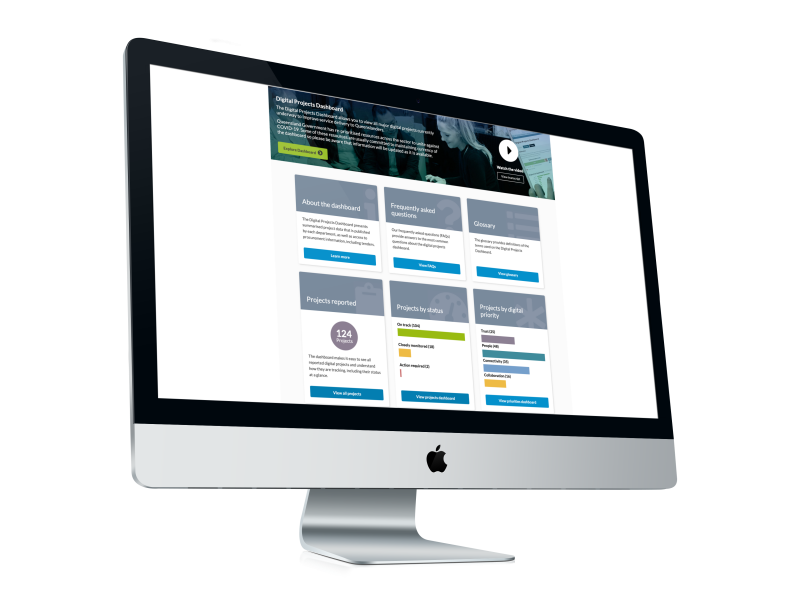Assurance is most effective when…’it’s early and often’
02.10.20
Qld agencies told to review IT projects after delays, budget blowouts!
Queensland government agencies have been urged to use the six-month hold on all non-essential new IT projects to review their project portfolios after a litany of budget blowouts and delays were uncovered.
The state’s Audit Office made the recommendation in an insights report that reveals “many technology projects currently do not hit their deadlines, stay within budget, or achieve their objectives”.
Dashboarding the truth
 The investigation (read the report), released on Wednesday, found that more than half the 118 IT projects reported on the state’s digital projects dashboard have deviated from their original delivery timeframe, while over a third have received additional funding.
The investigation (read the report), released on Wednesday, found that more than half the 118 IT projects reported on the state’s digital projects dashboard have deviated from their original delivery timeframe, while over a third have received additional funding.
Commentary from agencies, however, indicates that around “26 percent of projects will take at least 50 percent longer to complete than expected” and “23 percent of projects will cost 50 percent more than expected”.
The 118 IT projects are worth a combined total of $1.6 billion, with the auditor estimating that at least a further $500 million for IT projects by statutory bodies, government owned corporations, and local governments not reported on the dashboard.
Most projects average around $2.8 million each, though three projects, including Queensland Health’s e-health records program and the Department of Transport and Main Road’s smart ticketing program, are valued at more than $100 million.
The report also said that some projects like the Human Resources Information Solutions (HRIS) program “take longer to complete than originally planned but still meet their budget”, though the “dashboard does not show how often this occurs or why it happens”.
Case studies
 The HRIS program is the state’s long-running emergency services payroll overhaul that has been slowly replacing the Lattice payroll system – the same solution at the centre of the infamous Queensland Health payroll failure – at public safety agencies since 2014.
The HRIS program is the state’s long-running emergency services payroll overhaul that has been slowly replacing the Lattice payroll system – the same solution at the centre of the infamous Queensland Health payroll failure – at public safety agencies since 2014.
“This case study is an example of a multi-year program that took twice as long to complete than planned but had no change in budget. It delivered different products than planned and did not achieve all its objectives,” the report said.
After multiple setbacks, the auditor said the program “had delivered its payroll component but not the human capital management (HCM) solution”, as at June. The dashboard shows the HCM solution “remains in consideration” by the Queensland Ambulance Service.
The report also noted the $138 million in failed IT projects over the last three years, including the $52.7 million debt recovery system, $51 million pathology system and $34 million training management system.
Reviewing the current portfolio
 In light of these findings, auditor-general Brendan Worrall has recommended that boards and executives use the six-month hold on all non-essential new IT projects to “review their current portfolio of technology projects to re-confirm priorities”.
In light of these findings, auditor-general Brendan Worrall has recommended that boards and executives use the six-month hold on all non-essential new IT projects to “review their current portfolio of technology projects to re-confirm priorities”.
The state government introduced the freeze in July as part of a raft of saving measures aimed at redirecting $3 billion into the state coffers over the next three years without cutting services, laying off staff or selling assets.
“The government’s hold on all non-essential new technology projects offers an opportunity for entities to consider the implications of COVID-19 on their priorities and operations so they can recalibrate,” Worrall said.
“They now have time to ensure that they set up their projects to maximise success. To do this, they need to challenge and validate the need for their projects. This may require reassessing whether they have the right approach and skills.”
Queensland Corrective Services has indicated that it is already in the “process of reviewing and prioritising all in-flight and proposed IT projects, with the aim of either stopping, pausing or continuing where it is identified as essential”.
The auditor-general has also recommended that agencies ensure that future projects involving external suppliers have contracts that “clearly describe the solution” and “deliver the right outcomes for the business and share the risk and rewards across parties”
When assurance matters…
 Responding to the findings of the audit, the government’s chief customer and digital officer Chris Fechner was blunt in his assessment, suggesting that the report points to “deeper flaws” in investment decisions of agencies.
Responding to the findings of the audit, the government’s chief customer and digital officer Chris Fechner was blunt in his assessment, suggesting that the report points to “deeper flaws” in investment decisions of agencies.
“This insights report has used five related dimensions to show areas for improvement. In some project reviews all five dimensions are reported,” he said in a letter to the auditor-general.
“This fact tends to indicate to me that there may be deeper structural flaws in the investment decisions that require deeper analysis.”
Fechner, who was brought onboard to strengthen Queensland’s approach to IT investment and assurance, said a “government enterprise architecture position”, smaller investments and continuous delivery assurance could go some way to solving these issues.
_____
Original article appeared in IT News (www.itnews.com.au) on the 1st of October 2020, written by Justin Hendry – “Qld agencies told to review IT projects after delays, budget blowouts“
